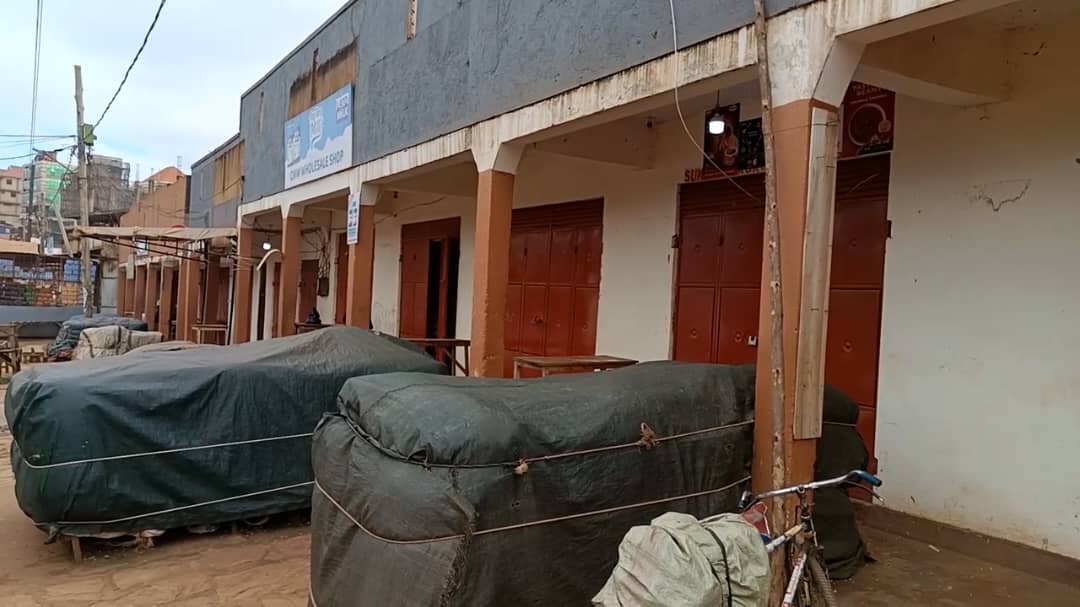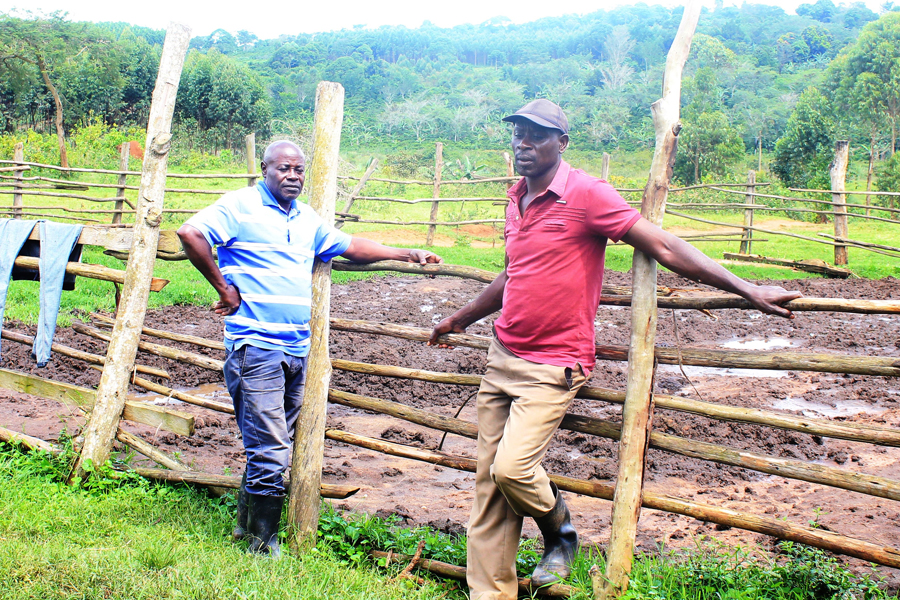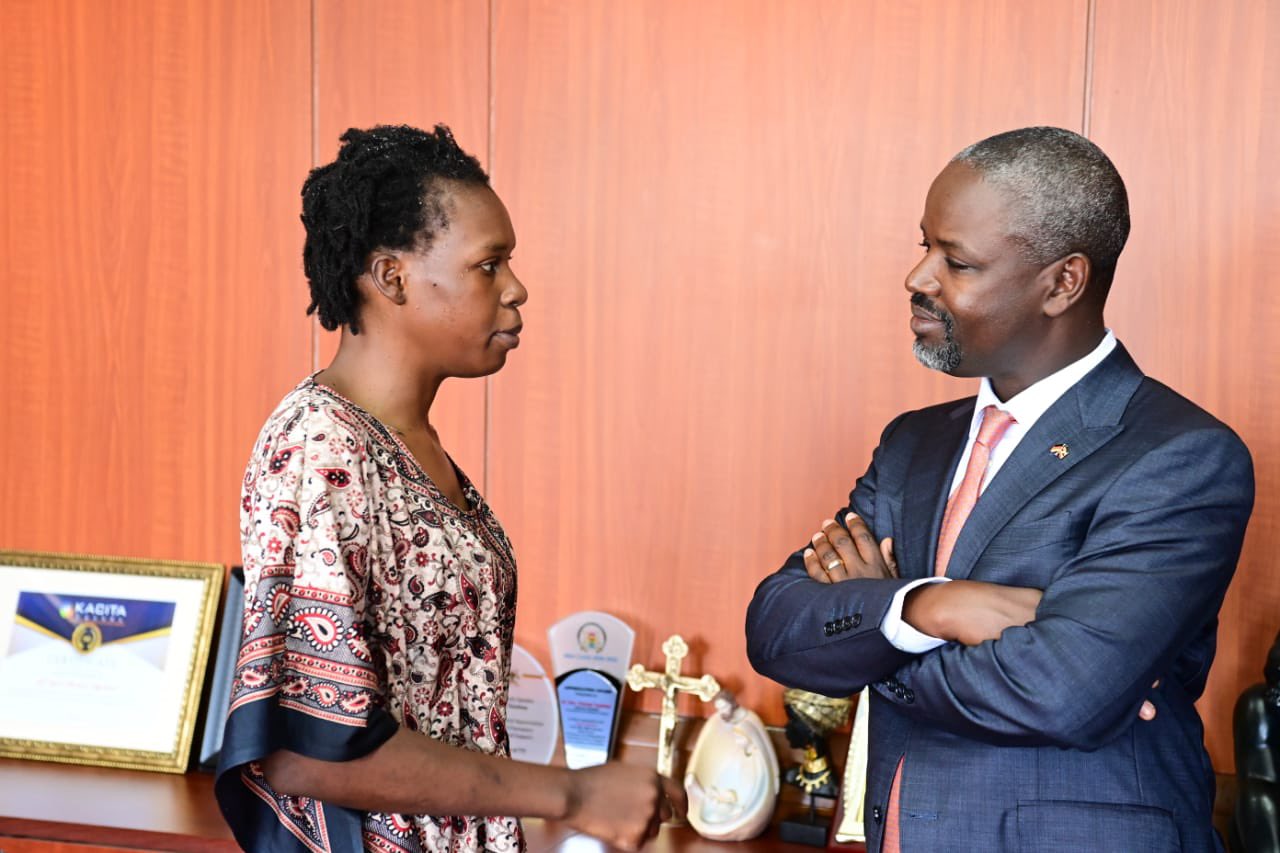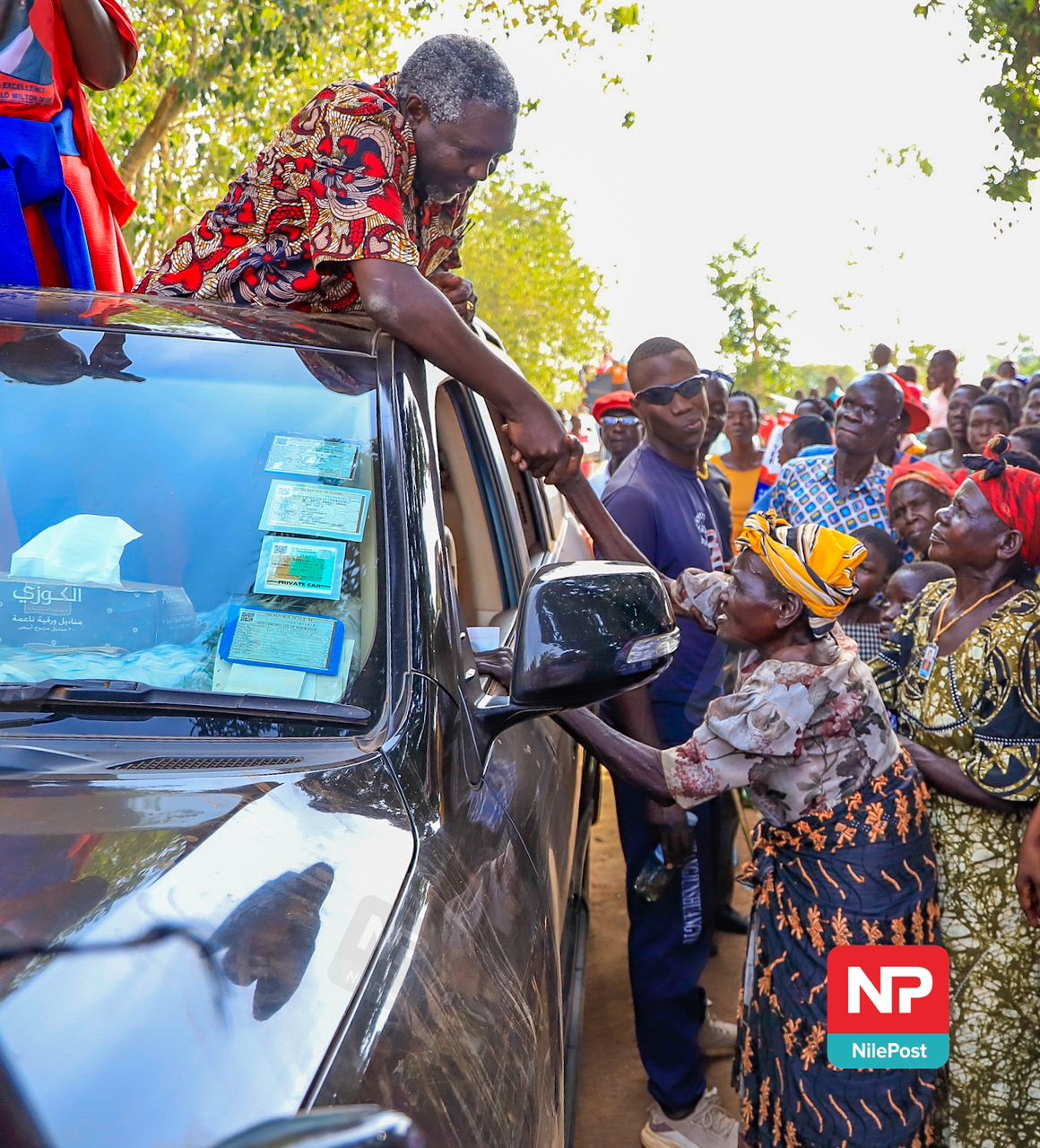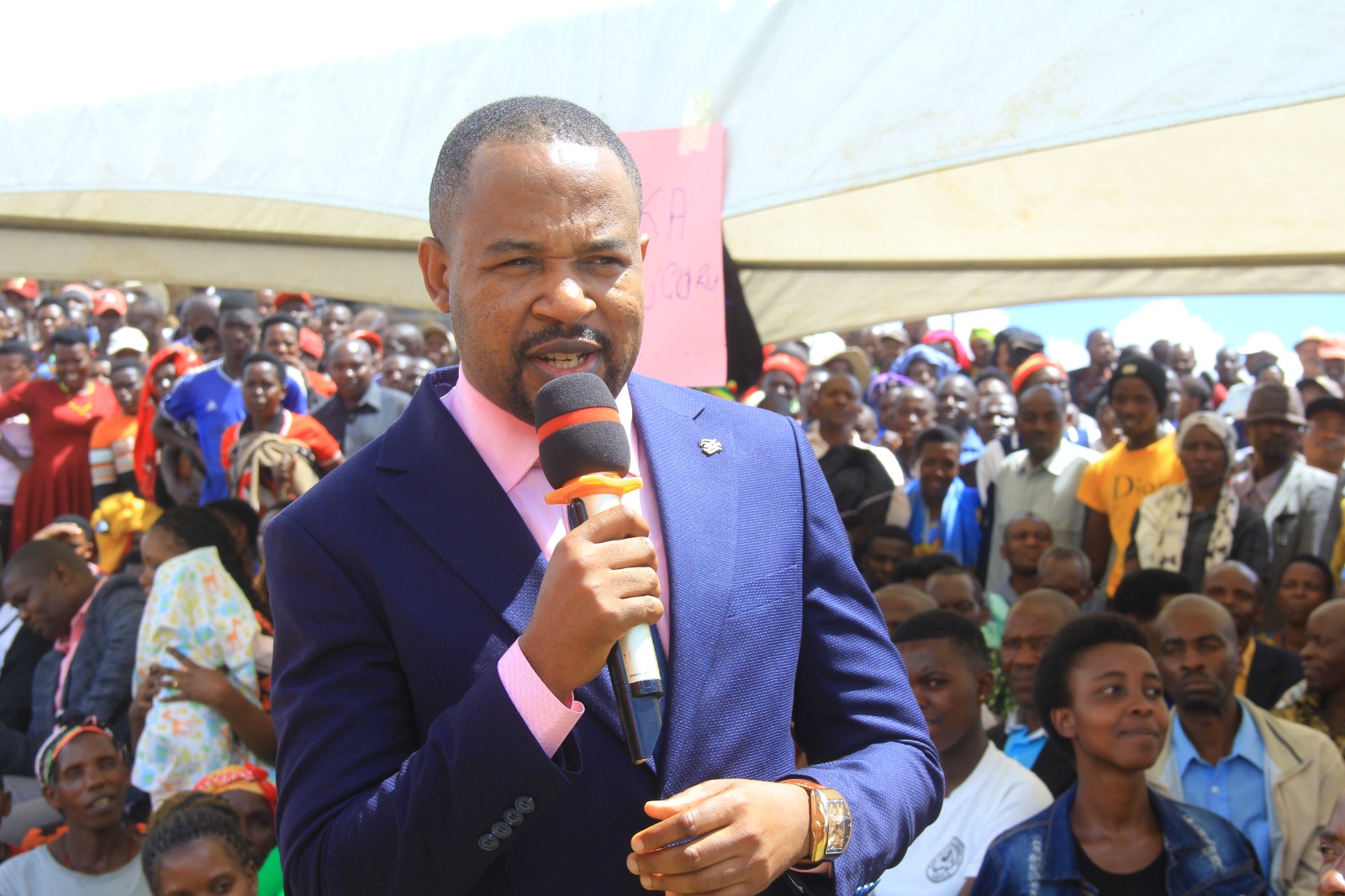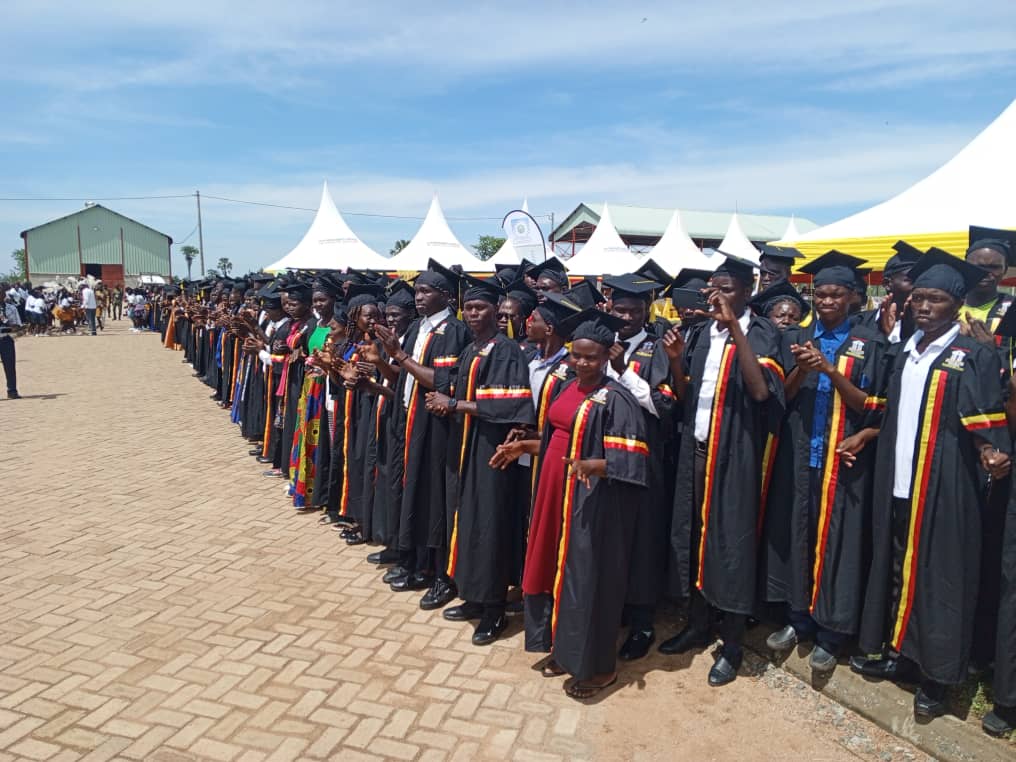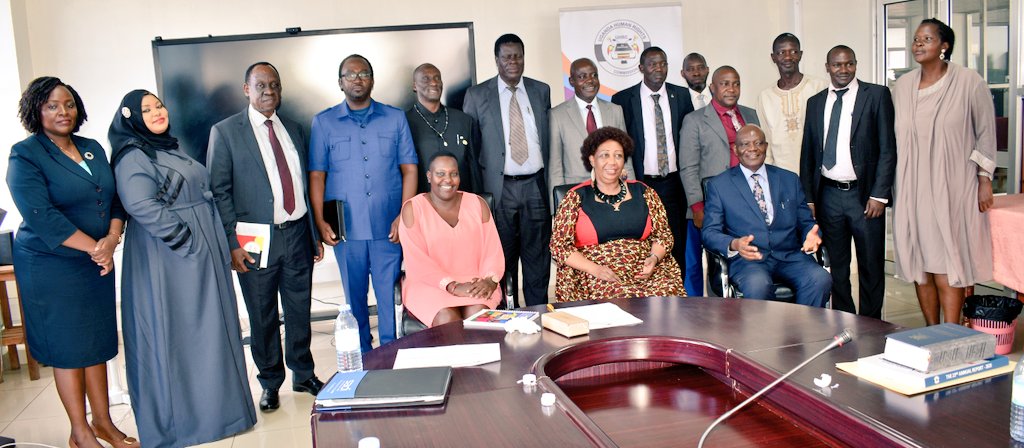Does the Kabaka own the official mailo?
DERRICK KIYONGA
The elementary unit of the mailo system is a square mile, hence the derivation of mailo, which is also equivalent to 640 acres.
The term is used in Uganda to describe a land tenure system that came into effect when the Buganda Kingdom signed the 1900 agreement.
The Mailo system is predominantly in Buganda region and in some parts of Mbale, Bunyoro and Toro.
For years one of the sticking points in Uganda or Buganda‘s history has been land and more specifically the ownership of land known as official Mailo in Buganda.
Sam Mayanja, a senior lawyer and also a land expert explains how this land question came about and who owns the official mailo found the in central region.
Apollo Kaggwa, Stanislas Mugwanya, Zakaria Kisingiri are forever interred in the history of Uganda as the regents of the toddler king Daudi Chwa who reigned between 1897 and 1939.
But to land expert Sam Mayanja , Kawalya and Kisingiri represent the what he terms as the Protestants Oligarchs who are the architects of now what’s known as the “ Buganda land Problem.”
"When you trace all Uganda‘s problems they actually find the cause at the door steps of the this protestant oligarchs” Mayanja, a founding partner of Kampala Associated Advocates says.
Before the new era was ushered in, top positions in Buganda were allotted along religious line. For instance, the unwritten rule was that the Kabaka, Katikkiro and the treasurer (Omuwanika) were Anglicans while the Mulamuzi (judge) was catholic.
Having aided the British imperialists to get rid of Kabaka Mwanga and installed a one- year –old Daudi Chwa. He was infantile and thus couldn’t make any decision.
Mayanja says that the two Protestants; Kaggwa and Kisingiri became Katikkiro and treasury respectively while Mugwanya, a catholic became the omulamuzi.
One protestant who missed out on top positions was war veteran turned Saza chief Semei Kakungulu, Mayanja says. Instead, he was told to go Bukedi region which covered a huge chuck of eastern Uganda.
“He was duped that he would be the king of Bukedi, yet the real reason the British wanted him over there was for him to become a colonial agent. He died a disillusioned me..,” Mayanja says.
At the time, Buganda was small nucleus comprising four counties: Kyaddondo, Busiro, Busujju and Mawokota.
The British wanted to make Buganda the centre of its imperial agenda whilst taking advantage of its centralised structure and to qualify as such it had to be bigger in territory.
“They helped Buganda raid its neighbours more so Bunyoro and that’s how Buganda came to have 20 counties including the two so called lost counties [ Buyaga and Bugangaizi which were later given back to Bunyoro by [President] Obote, ” Mayanja says.
In 1899, Mayanja says the British sent in administrator: Sir Harry Johnston ostensibly to cement Uganda as British protectorate in line with the Berlin conference of 1884 -85.
Though they mutually worked together at first Kaggwa and Johnston would later clash.
Subject of the ire was how Buganda was to be called.
On one hand, Johnston, in line with imperial diction, wanted Buganda to be called a province on the other Kaggwa insisted that it was kingdom.
Eventually, Mayanja says Johnston gave in though with a punch line: “I don’t care what you call it. You can call it a kingdom.”
Land question With that, Mayanja says the protestant oligarch in Buganda together with the British whose interests were taken care of by Johnston signed an agreement that has led to the ever present land crisis in Buganda- the 1900 Buganda agreement- which cemented British authority over Buganda and by extension Uganda.
“In the agreement, they came up with what they called Crown and Mailo land,” Mayanja explains adding that signing of the 1900 Buganda agreement basically ended Kabaka’s control over Buganda land.
While the protectorate government got about 10,500 square miles, the rest of Buganda land which measured up to 19,600 square miles was given to the Protestant oligarchs led by Kaggwa and Saza [county] chiefs, the Kabaka. While at it, Mayanja says, Baganda peasants didn’t get anything.
“It was about Protestant oligarchs. Buganda had very few people at the time. So these people allotted themselves land that they didn’t even know where it was,” Mayanja says.
Eight years after the Buganda agreement was signed, Mayanja says that there was no official demarcation of land in Buganda. That said, Kaggwa had moved to entrench his hold over power.
He moved to enforce one of the clauses of 1900 Buganda agreement- forming the Lukiiko in a move seen as copy and paste of the Westminster system.
In 1908, Mayanja, former secretary of Uganda Development Bank, says it is when land was officially allotted with Kaggwa getting over 100 square miles.
In fact, Kaggwa got way to much land to the extent that it’s said he started distributing land to his unborn children. “If any of his wives was pregnant he would simply say, this piece of land belongs to that child [foetus] of mine…” Mayanja explains.
In fact, Mayanja says that every Saza chief was given about 8 square miles of land, the reasoning behind handing out this arable land to the chiefs was for them to use I grow cash crops such as cotton and coffee.
Of all the land that was distributed, it’s that 350 square miles of land that was to Kabaka Chwa not as an individual but in as Kabaka to hold in trust ship on behalf of the Buganda that has created much storm up to date.
Currently, lawyer Male Mabirizi is at the Supreme Court challenging the obligatory process of registering people living on the official mile at a fee ranging from Shs 100, 000 and 600, 000 depending on the size and location of the land.
The thrust of Mabirizi’s case is that the Kabaka doesn’t individually own this land to start charging people.
The Mengo establishment has defended the move on grounds that it’s in good spirit since it aims at regularising tenancy of Bibanja holders in a bid to survive ‘vultures’ in Uganda’s hot-blooded land sector.
Though Mengo insists that official land belongs to the Kabaka, during the 1908 land bonanza, Mayanja says Mutebi’s grandfather Chwa , as an individual , was given 101 square miles and this wasn’t part of the official mailo.
“That is the only land that Chwa’s descendants have a claim over. If they want they can sell it. But official Mailo is public land. It can’t be owned individually."
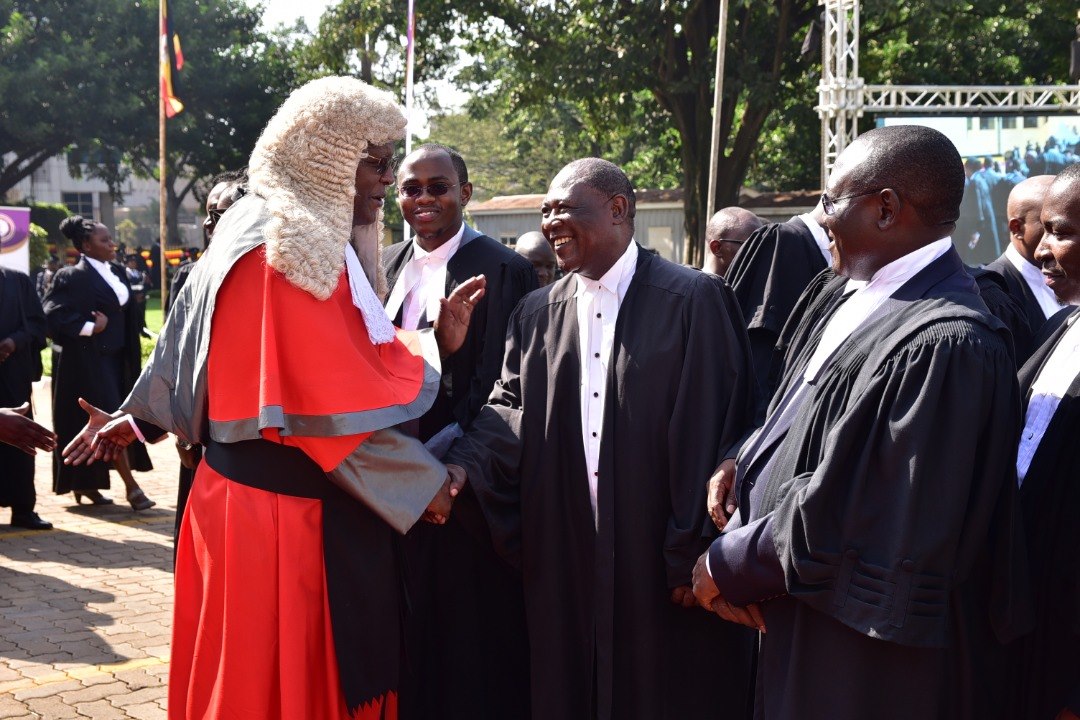 Sam Mayanja greeting Chief Justice, Bart Katureebe
Sam Mayanja greeting Chief Justice, Bart Katureebe
To buttress his point, Mayanja says under colonial rule Buganda land board which was a public entity was formed and its role was to take care of the official mile. This is a sharp contrast to what is happening today.
“Buganda Land Board which says that it’s in charge of official mile is a limited company. It’s a private company owned by one person Kabaka Ronald Muwenda Mutebi. A private company can’t take care of public land,” Mayanja explains.
The 1966 events and the subsequent abolition of kingdoms in 1967, Mayanja says also entrenched that the concept of official mailo being public land.
“Since the kingdoms weren’t legal all the land was turned into public land by Obote’s regime,” Mayanja says adding that even when Idi Amin took over he didn’t help matters he also insisted that the land should be in the hand of Uganda Land Commission.
“In 1975 even private mailo became public land. People would go to the Public Land commission to get land titles,” Mayanja says.
Of course, Mayanja isn’t oblivious of the fact that Kabaka claims ownership of the official mile under the Traditional Rulers (Restitution of Assets and Properties) Act.
But he says this is an error which should be rectified as soon as possible in order to avert any jeopardy.
“I think it’s about they recognise that this public land and they at least account of this land,” he says.
The author is a journalist.
dkiyonga@gmail.com


